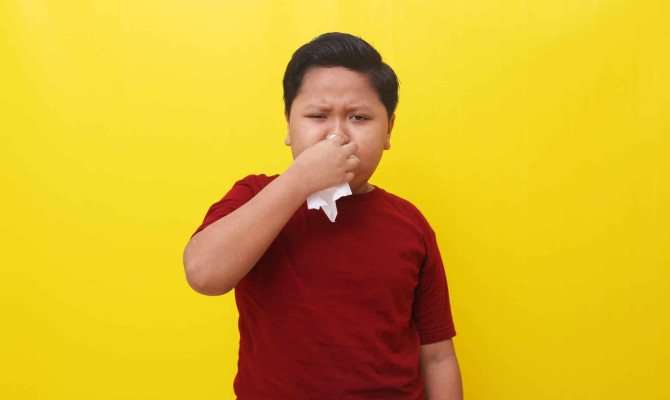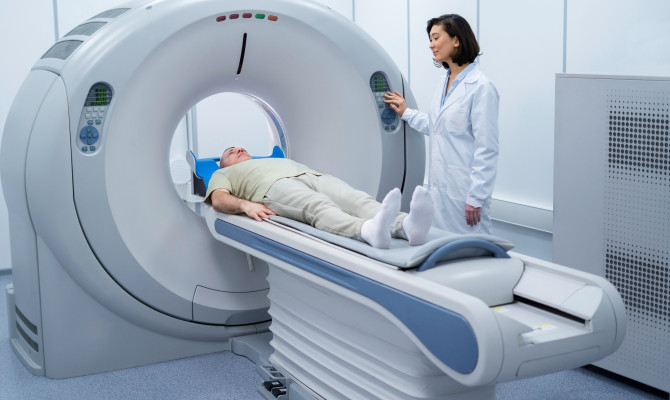Understanding Allergic Rhinitis and Effective Management Strategies

- Allergic Rhinitis
- 14 Aug 2023
Overview
What is Allergic Rhinitis ?
When the immune system overreacts to airborne allergens like pollen, dust mites, animal hair, and mold, it can result in allergic rhinitis, also known as hay fever.
This condition affects the nasal passages, causing inflammation and irritation, and is defined by symptoms such as sneezing, runny or stuffy nose, itching and watery eyes, and postnasal drip. 1What is allergic rhinitis | Researched based study from Nih.gov

Prevalence
How common is Allergic rhinitis?
Millions of people around the world suffer from allergic rhinitis, which is a very prevalent condition. According to the World Health Organization, allergic rhinitis affects between 10% and 30% of people globally.
Allergic rhinitis prevalence varies depending on the region and people being studied. The majority is typically more significant in developed nations, with rates ranging from 10% to 30% for adults and up to 40% for children.
With speeds ranging from 5% to 20%, the prevalence is less common but still essential in developing nations.
In recent years, allergic rhinitis cases have increased, particularly in urban regions. This results from more significant exposure to allergens, lifestyle modifications, and pollution.
Classification
What are the different types ?
- Seasonal allergy rhinitis (SAR), also known as hay fever, is brought on by exposure to allergens that are in the air at specific times of the year, usually in the spring or autumn. Tree, grass, and weed pollen are typical causes.
- Perennial Allergic Rhinitis (PAR) is a chronic disease brought on by exposure to indoor allergens like dust mites, cat dander, and mould. Temperature or indoor air quality changes can worsen symptoms throughout the year. 1Classification | Researched based study from Nih.gov
Symptoms
What are the symptoms associated?
The symptoms of allergic rhinitis come in different degrees of intensity and duration. The most typical signs are as follows:
- Sneezing: It is a common symptom of allergic rhinitis, particularly when the person is exposed to allergens.
- Running nose: Allergic rhinitis may result in a clear, watery running nose.
- Nasal congestion: When allergic rhinitis is present, nasal congestion is a typical symptom that can make breathing difficult.
- Itchy eyes, throat, and nose: Allergic rhinitis is characterized by itching in the eyes, throat, and nose.
- Post nasal drip: Post nasal drip is a cough or sore throat caused by excess nasal mucus that drips down the back of the oesophagus.
- Fatigue: The effects of fatigue and sleep problems on one’s general quality of life.
- Headache: Some people, mainly if their symptoms are severe, experience headaches.
- Affects taste: Reduced ability to flavour or smell.
Causes
What are the possible causes?
Although the cause of allergic rhinitis is unknown, research indicates that a mix of genetic and environmental factors may be in effect.
The following are some typical reasons for allergic rhinitis
- Genetic predisposition: The tendency of allergic rhinitis to occur in families suggests that genetics may be involved in the onset of the disease.
- Exposure to allergens: Pollen, dust mites, cat dander, and mold spores are the allergens that cause allergic rhinitis the most frequently.
- Air pollution: By causing more nasal inflammation, exposure to air pollution can worsen allergy symptoms
- Occupational exposure: People working in industries such as farming, woodworking, and textile production may be at a higher risk of developing allergic rhinitis due to their exposure to dust and other airborne substances.
- Weather variations: Some people’s allergic rhinitis symptoms may also be aggravated by temperature, humidity, and atmospheric pressure variations.
- Hormonal changes: Due to the body’s hormonal changes, allergy symptoms in women may get worse during periods, pregnancy, and menopause.
- Certain drugs: Some drugs, including aspirin and ibuprofen, can serve as triggers in some kids.
It’s essential to remember that these factors can all be combined to cause allergic rhinitis, and each individual will have different triggers. 3What are the possible causes | Researched based study from Cdc.gov
Diagnosis
How is Allergic rhinitis diagnosed?
The medical history, physical exam, and allergy testing can all be used to diagnose allergic rhinitis.
Medical History
A thorough medical background is crucial for correctly identifying allergic rhinitis. The doctor may ask about your symptoms, such as:
- How long have they been present?
- Do you face symptoms all year long or just at specific times of the year?
- Do you have a history of allergies in your family?
- Do you currently take any medications or other medical conditions that might affect your allergies?
- Inspection of the body. 2Diagnosis | Researched based study from Nih.gov
Physical examination
The physician will search for indicators like nasal tissue that is
- Swollen, pale, or blue.
- Red, watery, or irritated eyes.
- Neck lymph glands that are swollen.
- Bruise on the nose’s bridge (due to constant rubbing).
An allergy test
- Testing for allergies can identify the clear toxins that cause symptoms. A skin prick test or a blood test can be used to screen for allergies.
- A skin prick test involves applying a small amount of the allergen to the skin and pricking it to enable it to enter the skin.
- There will be a raised, itchy bump if you are sensitive to the allergen. The levels of allergy antibodies in the blood are evaluated using a blood sample in a blood test.
Treatment

Treatment
It may be possible to lessen the intensity of symptoms by identifying and avoiding the allergens that cause symptoms. For instance, remain indoors on days with high pollen counts, use air filters, and keep the windows and doors closed to prevent exposure to pollen.
Medications
Antihistamines
- Histamine, a substance released by the immune system during an allergic response, is inhibited by these drugs.
- Itching, sneezing, and runny nose are just a few symptoms that antihistamines can assist with.
Decongestants
- Restricts blood vessels in the nasal passageways, which reduces nasal congestion. They come in the form of liquids, tablets, or nasal sprays.
Nose corticosteroids
- Reduce nose inflammation and aid with symptoms like sneezing, nasal congestion, and itching.
Leukotriene modifiers
- They block the action of leukotrienes, chemicals released during an allergic reaction. They can aid in easing signs like sneezing, itching, and nose congestion.
Immunotherapy
- Consists of administering tiny quantities of the allergen that causes symptoms regularly by injection. This may eventually assist in lowering the body’s susceptibility to the allergen.
Remedies
Home remedies
Nasal irrigation
- Saline solution nose irrigation can help clear out irritants and lessen congestion.
- Inhaling steam from hot water can help to clear up nasal congestion.
- Consuming honey may help with allergic rhinitis symptoms by making the immune system less sensitive to pollen.
Surgery
- Surgery may be advised if other therapies are ineffective for treating severe allergic rhinitis.
- Surgery may be advised for severe instances that do not improve with other treatments. Nasal tumours may be removed during surgery, as well as a deviated septum.
Complications
What are the complications?
Inflammation of the sinuses brought on by allergic rhinitis, if untreated, can result in severe consequences such as:
Sinusitis
- Sinusitis can be caused by sinusitis, which can be caused by nasal inflammation. Along with headache and fever, symptoms include facial discomfort, pressure, and congestion.
Infection
- Inflammation of the Eustachian tubes links the middle ear to the back of the pharynx, resulting in ear infections. This can contribute to ear infections, which can cause pain, hearing loss, and fever.
Asthma
- In individuals with both conditions, allergic rhinitis symptoms can exacerbate asthma symptoms.
Sleep issues
- Difficulty falling asleep due to signs like itching, sneezing, and nose congestion. This might make you feel worn out and cranky.
Reduced quality of life
- It can impact a person’s quality of life by causing physical discomfort, interfering with everyday activities, and affecting social interactions.
Prevention
How can I prevent allergic rhinitis?
Here are some ways to prevent allergic rhinitis
Avoid allergens
- When pollen counts are at their highest, stay inside, shut your windows, and use air conditioning with a HEPA filter. If certain foods or dogs are contributing to your symptoms, you should also avoid them.
Use saline nose rinses.
- Nasal saline rinses can assist in clearing your nasal passageways of irritants and allergens. These can be manufactured at home with sterile water and salt or purchased over the counter at pharmacies.
Keep your home neat.
- Regular cleaning can help to decrease allergens in your home. Using a vacuum with a HEPA filter, clean the carpets, drapes, and bedding on a regular basis. Maintain low humidity levels to stop the development of mould.
Immunotherapy
- Also known as allergy shots, it is a long-term treatment that includes regular injections of small amounts of allergens. Over time, this can help your immune system become less sensitive to the allergen and lessen the intensity of your symptoms.
Maintain excellent hygiene
- To lessen your exposure to allergens, wash your hands frequently, particularly after being outside or around animals. Before going to night, take a shower to get rid of any allergens that might have accumulated on your skin and hair during the day.
- Drink plenty of water to keep your nasal passageways moist, which can help to lessen congestion and make breathing easier.
Diet
- Eat a balanced diet rich in fruits and vegetables to strengthen your immune system and decrease inflammation, which can help with allergy symptoms.
Get plenty of sleep
- Fatigue and irritability, which are frequent side effects of allergic response, can be lessened with adequate rest. 4Prevention | Researched based study from nhs.uk
Any feedback on this article?
 This Articles content was accurate
This Articles content was accurate Very Informative Article
Very Informative Article I have a question or a comment
I have a question or a comment
 This article contains inaccurate content
This article contains inaccurate content This article was not helpful
This article was not helpful I have a question or a comment
I have a question or a comment
We appreciate your helpful feedback!
Checkout our social pages
References
-
National Institutes of Health
Allergic Rhinitis | Overview | Types | Symptoms
-
National Institutes of Health
Worldwide prevalence of rhinitis in adults: A review of definitions and temporal evolution
-
Centers for Disease Control and Prevention
Allergens and Pollen | Causes
-
National Health Service
Allergic rhinitis | Prevention





































